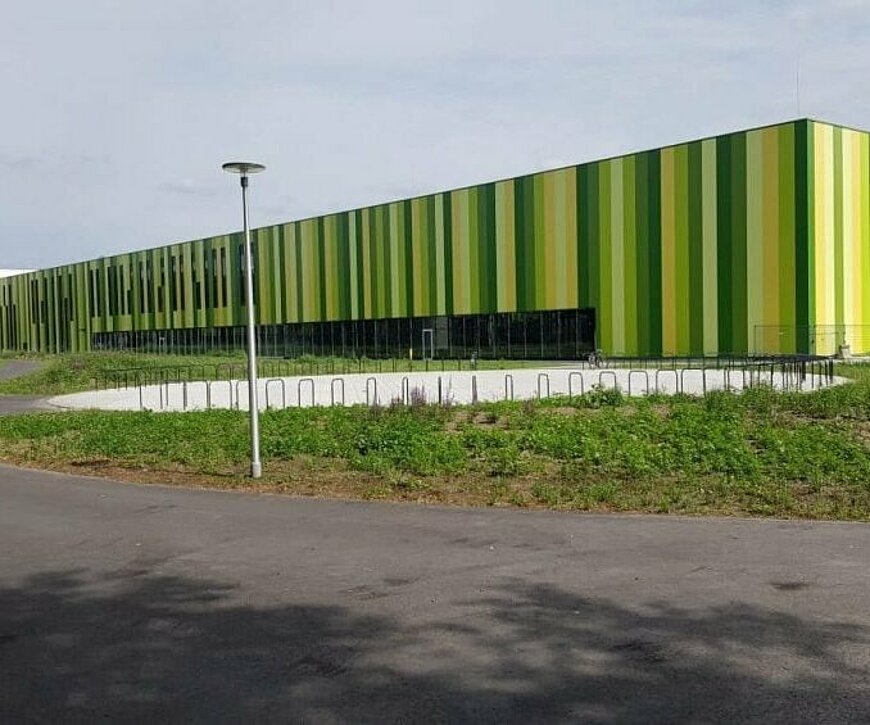A revolution in data exchange is taking place at BIC

The success of the manufacturing industry hinges on an efficient production process. In this, the digital exchange of large amounts of data is indispensable. The SCSN Foundation, based at Brainport Industries Campus (BIC), manages the fastest-growing data exchange network, where efficiency, reliability, and sustainability are key. “With this, we are going to contribute to a competitive, European manufacturing industry,” says Rob de Beule, General Manager of SCSN.
No more manually creating quotations or sending order confirmations to customers. It is a future dream of many manufacturing companies and (suppliers). That future is closer than thought, however, with the (eponymous) Smart Connected Supplier Network of the SCSN Foundation. This so-called “data standard” automates the exchange of information in the supply chain, making it more efficient and simpler.
The foundation is based at BIC and arose in part from the Factory of the Future innovation program at BIC. In the program, within eight field labs, companies, schools, knowledge institutions, and the government work together on themes to digitize and automate the manufacturing industry.
A network of networks
In essence, it is about a network of networks, where service providers – think T-mobile or Vodafone – are connected, explains De Beule. The manufacturing companies are the end users.
“SCSN acts as a link between the providers. This allows each manufacturing company to communicate with all other companies within the SCSN network, regardless of which providers they are affiliated with.”
De Beule
SCSN consists of two solutions: a messaging standard that agrees on what information is shared in what format, and a technical infrastructure that agrees on how the information can be shared in a secure and controlled manner with all SCSN partners.
The heart of the manufacturing industry
The number of companies and institutions using SCSN is growing rapidly. More than two hundred manufacturing companies, ICT suppliers, knowledge institutions, and industry associations have already joined, including Macroscoop, a specialist in implementing and supporting integrated Epicor Smart Industry solutions. KMWE, based at BIC, also joined: expert in the field of metalworking and an icon on the European market.
And that’s no coincidence.
“BIC is the mecca of the manufacturing industry, so people sometimes say in the corridors here. When you enter here you immediately feel that atmosphere. Companies knock on each other’s door to spar together about a new idea and seek cooperation, as was the case with KMWE.”
De Beule says with a laugh
Companies based at BIC are also in close contact with knowledge institutions. “For example, we are looking at how we can offer students from Summa College and Fontys ICT an internship or graduation project here.”
Efficient, error-free, and sustainable
The companies that come into contact with SCSN quickly notice the advantages that this uniform, digital data exchange can offer them. First: When information automatically enters a digital system, it saves a lot of time and energy. It also reduces the chance of making mistakes during quotations, order confirmations, or payments.
High reliability is also a positive point. Now companies often depend on a single platform for sharing data that has insight into all transactions. A problem that is solved with SCSN. “What we want to prevent is a kind of Vendor Lock-in. That happens when a customer is dependent on a vendor for products and services because they are unable to switch vendors without substantial switching costs or inconvenience. SCSN is a nonprofit organization that puts its members’ interests first. The community largely determines the solution and direction.”
In addition, sustainability is moving up the agenda among manufacturing companies. SCSN is therefore working on a so-called digital product passport. De Beule explains how that works. “With this, we make it clear exactly how a product is produced. Has consideration been given to the impact on the climate? What is the carbon footprint? In the digital product passport, which we will eventually add to our application, those kinds of characteristics will appear. In doing so, we are contributing to the transparency of the entire supply chain.”
Stepping outside national borders
In short, anyone who visits BIC will see that the manufacturing industry must recognize the benefits of a data standard. In the future, more and more manufacturing companies will embrace the concept, predicts De Beule. And this development will not stop at national borders. For example, in cooperation with TNO, SCSN is orienting itself toward connecting the network to a more extensive network at the European level. “In Europe, you see more and more similar initiatives being started up. How nice would it be to all link all these data networks together? With this, we are going to make a positive impact on the competitive edge of the European manufacturing industry.”
Ultimately, then, not just companies but entire ecosystems will be connected.
“This is how we link the Brainport region to European ecosystems, and we are working hard to make that happen,”
De Beule concludes.
